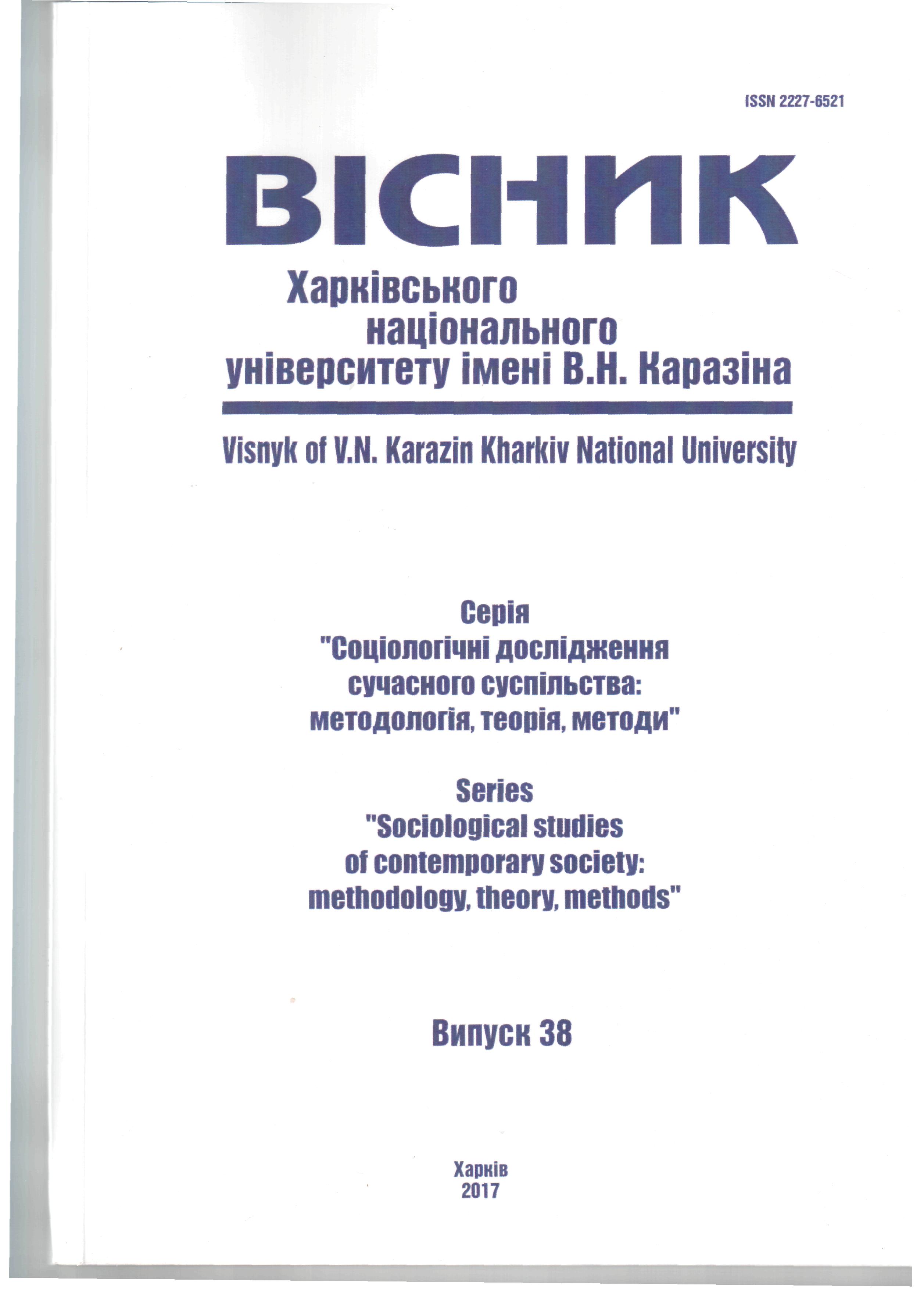School Youth of Ukrainian Boderland: Prospectsa and Risks of Realising Their Life Strategies
Abstract
The authors of this article examine the prospects and risks of the life strategies of school youth. The authors conduct a comparative analysis of school leavers of Eastern and Western borderlands of Ukraine, Poland and Hungary. The empirical basis of this paper implies the results of original international sociological project «Youth in the Borderlads of Central and Eastern Europe». This research is an attempt to answer the question concerning functioning of youth in peripheral locations, which impose limits connected with their life chances. Sociological research was conducted in April-June 2015 among the high school graduates of Ukraine’s, Poland’s and Hungary’s borderlands. In the theory authors rely on the I. Wallerstein’s World - systems theory, and in particular authors consider borderlands as periphery in the «centre – periphery» system. Life strategies are viewed as a system of longitude objectives of a person / social group, as well as their motifs and values. Therefore, life strategy is a social, cultural and personal projection of the individual / group in the future. This analysis will answer to the question: whether the modern youth is a factor for modernization and development of borderlands or, vice versa, a factor for transforming borderlines into periphery. The conducted comparative analysis showed similarities in youth’s life strategies of Lviv and Kharkiv regions. The research outcomes demonstrated high importance attached to education by the youth of Eastern and Western boderlands of Ukraine. Education is viewed as both terminal and instrumental values. Nevertheless, some differences between borderlands of Ukraine and Poland occur as well. Ukrainian young people tend to be more than others determined to get higher education. This trend has many risks for youth and for society.
Downloads
References
Валлерстайн И. Конец знакомого мира: Социология XXI века [пер. с англ. под ред. Б.Л. Иноземцева] / И. Валлерстайн. – М. : Логос, 2004. – 368 с.
Флорида Р. Креативный класс: люди, которые меняют будущее [пер. с англ.] / Ричард Флорида. – М. : Издательский дом «Классика-XXI», 2005. – 421 с.
Манхейм К. Диагноз нашего времени [пер. С. Карпушина и др.] / Карл Манхейм. – М. : Юристъ, 1994. – 693 с.
Шевандрин Н. И. Социальная психология в образовании / Шевандрин Н. И. Ч. 1. – М. : ВЛАДОС, 1995. – 544 с.
Резник Т. Е. Жизненные стратегии личности / Т. Е. Резник, Ю. М. Резник // Социологические исследования. – 1995. – № 12. – С. 100–105.
Костюченко Л. Г. Введение в теорию личности: социокультурный подход : Учебное пособие для вузов / Л. Г. Костюченко, Ю. М. Резник. – М. : Независимый институт гражданского общества, 2003. – 272 с.
Абульханова-Славская К. А. Стратегии жизни / К. А. Абульханова-Славская. – М. : Мысль, 1991. – 299 с.
Хабермас Ю. О практическом, этическом и моральном употреблении практического разума / Ю. Хабермас // Хабермас Ю. Демократия, разум, нравственность. – М. : Ин-т философии, 1995. – С. 7-33.
Головаха Е. И. Жизненная перспектива и ценностные ориентации личности / Головаха Е. И. // Психология личности в трудах отечественных психологов. – СПб. : Питер, 2000. – 476 с.
Długosz Piotr. Youth in the Situation of Anomie in the East-Central Europe Borderlands [Електронний ресурс] / Piotr Długosz // Youth in Central and Eastern Europe. Sociological Studies. – 2016. – 2 (6). – S. 11-26. – Режим доступу: http://www.youthjournal.eu/Youth%20Yournal%206-2016-3.pdf





